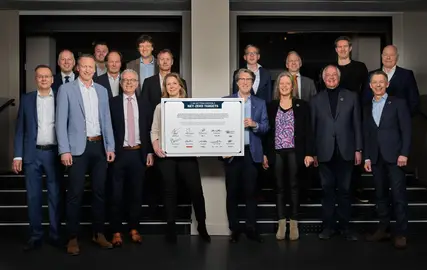A good working environment is part of a healthy workplace environment
Sustainability has always been an integral part of our approach to business. We are fully aware of the impact of our activities on the environment, and therefore we systematically monitor this at all levels with a commitment to continual improvement.
Our approach is not limited to details, it fundamentally affects all areas of our activity. We invest in recyclable materials, step by step we are moving towards the circular economy, and our production and transport activities are designed to reduce the production of greenhouse gases as much as possible.
Our goal: zero CO₂ emissions by 2050.
We recently joined the SBTi initiative, which helps with the meeting of climate goals. We are thus committed to rapidly halving greenhouse gas emissions across our value chain by 2030 and to achieve carbon neutrality by 2050 at the latest, which means cutting current emissions by around 90%. This is another step on our way to socially responsible business.
Ahrend Sustainability & Circularity
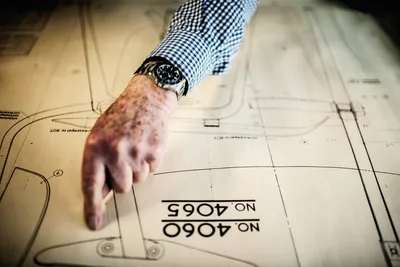
Furniture for life
Long service life of products is part of the brief that all our designers work to. Design solutions take into account the entire product lifecycle – from the extraction of raw materials to production, distribution, use, and finally repairability, recycling and disposal.
Our approach is in line with the principles of Ecodesign, which we first embodied in our A220 office chair and have been a standard part of product development at Ahrend since the 1990s. We also follow the Cradle to Cradle principle, which places the highest possible demands on products and the production process, and ensures not only a reduction in material consumption, but also their high quality.
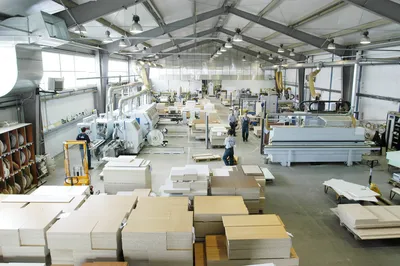
Modern technology in production
The Ahrend production facility in Prague is among the most modern furniture production facilities in Central and Eastern Europe. From the 1990s we have gradually expanded the factory, increased its productivity and introduced new technology. In 2023 we installed a completely new production line from German firm Homag, which will help us to achieve our ambitious environmental goals.
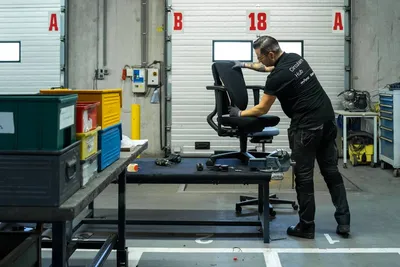
Circular strategy
In our Circularity Centre in the Netherlands, which has an area of 12 000 m², we have concentrated the Royal Ahrend group specialist expertise and production technology in the field of circular production. Here we give a new lease of life to used office furniture that we receive back from our customers. The experience gained from this experimental operation will be applied in the other countries in which we are active.
I AM Chair Environment Friendly, Sustainable and Design
Chairs that take care of the environment
The I AM task chair is a perfect example of our philosophy and a practical application of the circular design principle. Modular design of a product with standardised components simplifies reuse. All used materials correspond to the Cradle to Cradle requirements regarding chemical substances. During production only renewable energy is used and a maximum amount of recycled material. The products are packed using reuseable and recyclable packing material.
Be inspired by the sustainable elements in our projects
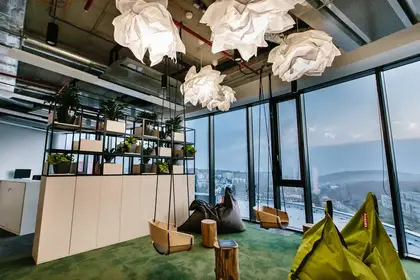
The green office
Literally at every step, you will sense the connection with nature and the effort to use as many sustainable materials as possible. The architect's wish was to create sustainable offices, so, for example, the coffee tables are made from old cable reels.
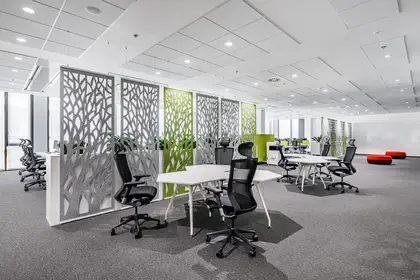
Dr. Max
Acoustic panels can be original and at the same time environmentally friendly. The products of Feltouch are made from recycled PET and polyester fibres without any chemical binding agents. They are certified as having a low content of volatile organic compounds.
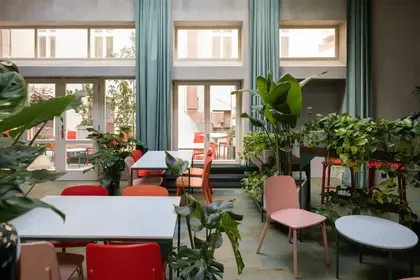
Longevity Café
An emphasis on ecology and nature has guided the designers when working on every element used. The biggest challenge in this project was figuring out how to process the recycled plastic used for the tables, planters and bar top so that it looked like stone.
